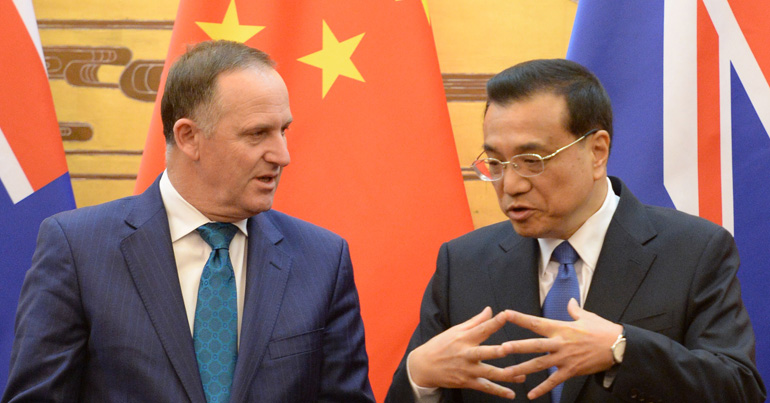Last year you expressed disappointment that President Trump decided not to sign up to the Trans-Pacific Partnership (TPP). There have been reports that officials from the remaining 11 countries will be meeting next month to discuss reviving it without the US. If that should go ahead, would it mean for the region?
As someone that was very actively involved in negotiations for the TPP, obviously I want to see it go ahead. And clearly the trade agreement would be strengthened if the United States was part of that because of the size of their domestic economy. But I don’t think that we should abandon the process if the United States decides to take a little longer. I think the challenge is that for a lot of countries, particularly New Zealand, the missing link for us really was not having a US-New Zealand FTA [free trade agreement], so there’s no question that it makes it harder if the United States is not there. And I think it’s something they’re going to have to consider over time, because a lot of what drove President Obama’s thinking wasn’t just the capacity to access middle-income consumers, it was ultimately about their presence and their leadership in the region, and it was really that pivot to Asia that President Obama talked a lot about. And I think the fundamentals that sat behind that are still there. It’s obviously tough for the new administration because it hasn’t been part of their programme. But over time they may find a way to try and soften that.
On that note of President Obama’s pivot to Asia, just in the past few days there have been leaked documents suggesting that the Trump administration would severely cut US development assistance to a host of countries including most of Southeast Asia. Are you concerned that the United States is stepping back from the region at a time when perhaps more engagement is called for?
Obviously it’s not for me to comment on what US domestic policy is, but there’s been a very sound set of reasons that underpinned the support the United States has given to the region – part of it is simply the sheer need for development, and as I said part of it has been the leadership role that any global superpower the United States enjoys fundamentally undertakes, but in the end again the administration will make its own decisions and it will live and die by those. But I think over the last ten years you’ve seen enormous growth in the region, and the American administration has been an important part of that leadership, so it’s for them to decide.
If there were a larger free trade agreement that includes China rather than the US, is that something that you believe would be in New Zealand’s best interests to become a part of?
China’s our either number one or number two trading partner, depending on how you measure it. From our point of view, it’s unlikely a lot would change if China came in, although I’ve always been a believer that China would become part of an expanded TPP over time. The reason for the change was because we’re the only developed country that has a free trade agreement with all parts of modern China – so mainland obviously, Hong Kong and Taiwan. But I think that’s the very issue that the United States has to confront; that you can only leave a void or a vacuum for a certain period of time, and ultimately China will, I think, step up and fill that void if the United States doesn’t. I don’t think it’s a competition, I think actually it’s a strength that both the United States and China are part of these agreements because they are the fundamental lynchpins behind economic growth in the world. They’re the number one and number two economies in the world and we need them to be supporting, I think, a more globally connected world. It seems in recent times we’ve been starting to see areas of protectionism being built back into the system. We’re already seeing some pretty strong rhetoric between the United States and Canada in the last 24 hours. It doesn’t help the region develop, and it doesn’t help the world.

